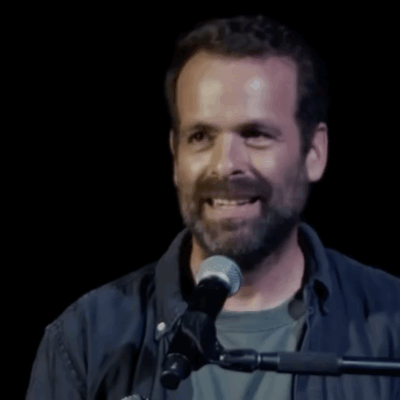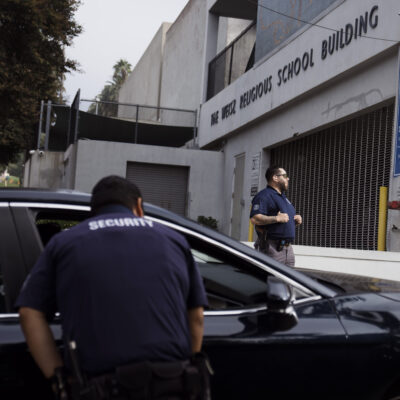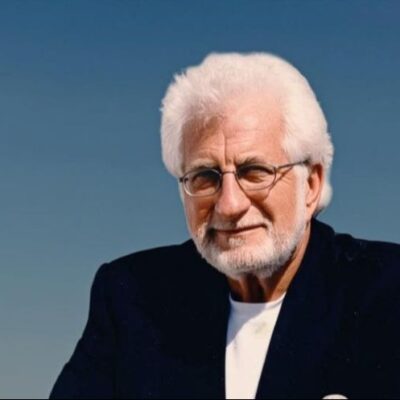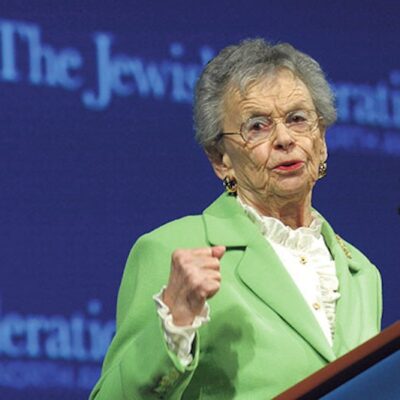Opinion
WAR MACHINES
We need to fight campus antisemitism differently
Anti-Israel orthodoxy was already trendy in academia and on U.S. college campuses before Oct. 7, with Israel regularly lumped into the shameful history of white European colonialism, but the virulent antisemitism that has emerged with shocking force post-Oct. 7 in protests on campuses across the country has taken the Jewish community by surprise. The most recent examples are the events still unfolding at Columbia University, NYU and Yale.
Jewish and Israeli-American students and faculty have reacted with passionate activism and pro-Israel demonstrations, and communal backlash has succeeded in convincing federal officials to start investigations into whether anti-hate laws are being violated. Generally speaking, though, the Jewish response has amounted to largely ad-hoc and uncoordinated defensive pushback. Make no mistake, there is nothing spontaneous, grassroots or student-led in what we are seeing at universities today: We face an incredibly well-funded, organized anti-Israel machine across the country.

Protesters in Gould Plaza at NYU Stern School of Business on April 22, 2024 in New York City. Michael M. Santiago/Getty Images
And to stop the antisemitic, anti-Israel machine, we need to create a more effective, stronger machine of our own.
As the great Chinese philosopher Sun Tzu details in his classic work The Art of War, the first step to waging a successful campaign is to know your opponent. After Oct. 7, we were taken aback not only by the depth of Jew-hatred but by the strength of the Israel-hating forces. That is why I delved into the landscape of pro-Palestinian mobilization, subscribing to newsletters, following pro-Hamas activists on social media and seeking out anti-Israel professors and campus lectures nationwide. Unlike the Jewish response, the pro-Palestinian messaging, while often simplistic and flatly historically inaccurate, managed to resonate deeply with students and others by tying themselves to universal values and aligning with intersectionality to build broader support (take Queers for Palestine, for example).

Additionally, while pro-Hamas forces have honed their strategies over the years through events like “Israel Apartheid Week,” those of us who support Israel lack a comparable long-term and centralized approach. Operating under the illusion that the values of diversity and acceptance extended to us, we were unprepared for the rising tide of antisemitism and deep anti-Israel hate.
In response to these observations, our approach to supporting Israel and addressing antisemitism must change in multiple ways.
Rather than simply standing with Israel alone, we need to make clear that the daily reality of Israel actually aligns with and represents the same progressive and universal concerns and values that students and faculty hold; and that Jews are in fact a tiny, even endangered, ethnic minority, not some powerful force as antisemitic conspiracists claim. We need to forge new connections with other groups, just as the anti-Israel groups did.
At the same time, Jewish community institutions must stop working in silos and duplicating efforts. In order to effectively counteract campus antisemitism, the Jewish community must mount a coordinated, robust and strategic campaign with a long-term vision that seeks systemic changes. The fight against antisemitism is not a sprint but a marathon against an age-old and enduring hatred. Critically, we should create a new structure that connects and unites a range of Jewish organizations with those who are already active in countering campus antisemitism: the Anti-Defamation League, Chabad, Alums for Campus Fairness, the Jewish fraternity AEPi, Hillel, the Israel on Campus Coalition, the Israeli-American Council (IAC) and others. Working together, we can fight back smarter while also demonstrating a united front.
Such a national response must also have the capacity and resources to do what is necessary. This is where philanthropists and philanthropic networks can play a pivotal role. Funding an academic think tank for pro-Israel activism can produce serious studies of the anti-Israel forces on campus, which is key to understanding what they are doing and creating unified messaging strategies to defend and support Israel. A campus-focused think tank can also generate new dialogue and thinking and mount innovative pro-Israel campus initiatives.
A pro-Israel campus machine will succeed if it is driven by a mission and messages that the vast majority of American Jews still agree on: We Jews have a right to be safe anywhere in America, and the State of Israel has a right to exist in safety.
Aya Shechter is the chief program officer at the Israeli-American Council.














